Automotive
/Home & Leisure

Here are the winners: 2025 North American Car, Truck, Utility of the Year
DETROIT – The envelope, please . . .
Winners of the 2025 North American Car, Truck and Utility Vehicle of the Year are the Honda Civic Hybrid, Ford Ranger and Volkswagen ID.Buzz. The prestigious NACTOY awards kicked off the Detroit Auto Show Media Day on Friday morning as the event returned to its traditional January slot as the first auto ...Read more

Oshkosh ready for possible USPS shift to gas trucks from EVs
Oshkosh Corp. is prepared to provide the U. .Postal Service more gas-powered mail trucks if the agency cuts back orders for electric vehicles, which benefit from funding President-elect Donald Trump has criticized.
“We’ll do what they want us to do — supplying either gas or electric,” John Pfeifer, the company’s chief executive ...Read more

Auto review: 2025 Acura ZDX EV is a great Acura that's not really an Acura
We live in an automotive age when we have access to more horsepower than ever before. Yet given the clogged arteries that plague America’s metro areas, it’s unusable and therefore pointless. What good is a 0-60 mph time of 2.5 seconds if it only gets you to the next traffic jam a few seconds sooner? Fast cars don’t do you any good crawling...Read more

Auto review: Lyriq EV woos new-gen buyers with old-school Caddy elegance
STERLING HEIGHTS, Michigan — While my Cadillac Lyriq tester drove itself in Super Cruise at 75 mph on I-696 eastbound, I swiped through the gorgeous, curved 33-inch dash screen to show my friend, Peter, our Zmash Padel destination north of General Motors Co.’s engineering campus on Mound Road.
As we bore down on traffic, the Caddy ...Read more

It's a sad day to be the 2024 BMW X1
Just as recent as last year, we tested the outstanding BMW X1, and its redesigned release to the consumer market. It boasted decent power, great fuel economy, superb comfort and good looks — just what most consumers are requiring in today’s inflated and car market.
In 2024, we test the BMW X1 M35i, an even better looking subcompact luxury ...Read more
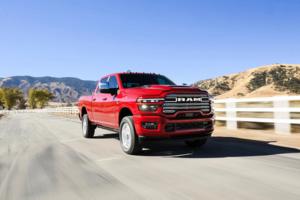
Ram shows off its freshened heavy-duty trucks -- and a punchy new CEO
DETROIT — Ram on Tuesday unveiled its updated 2025 heavy-duty pickups that offer more powerful and efficient Cummins turbo diesel engines, refreshed front ends and more interior screen space.
But the bigger recent news for the Stellantis NV truck maker is popular former CEO Tim Kuniskis coming out of retirement.
A day after the automaker ...Read more
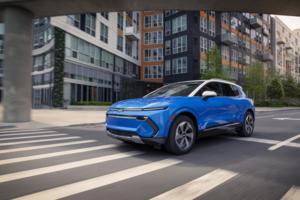
Automakers face affordability challenge in 2025
Affordability will be one of the largest challenges in 2025 for Detroit's automakers after General Motors Co. and Ford Motor Co. posted their best sales year in the United States since 2019, and as Stellantis NV's declines eased somewhat in the final months of the year.
Inventories swelled in 2024 following the end of pandemic-induced vehicle ...Read more
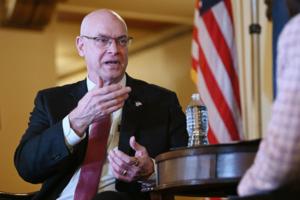
Blocked US Steel-Nippon deal raises risks for auto industry
Fears that the U.S. auto industry could face monopolistic pricing and dwindling investment into its preferred steel production are mounting after President Joe Biden on Friday blocked a Japanese company from acquiring U.S. Steel Corp.
Although automakers didn't explicitly endorse Nippon Steel Corp.'s $14.9 billion cash-and-debt deal to acquire ...Read more

Back to the future: Detroit Auto Show returns to January in a changed industry landscape. What to expect
The Detroit auto circus is back to its January roots — a new show for a new era.
After an epic, media-stuffed, celebrity-encrusted, 30-year run as the world-renowned North American International Auto Show, Motown’s auto-palooza is dropping its international marketing theme and now is simply called the Detroit Auto Show. Its Detroit Autos ...Read more

Motormouth: Resetting liftgate
Q: I own a 2014 Toyota Highlander. I'm having a problem with the automatic rear liftgate. Last week when the car was in the garage, with the garage door down, I mistakenly pressed the tailgate open button on the ignition key. The door went up, until it reached the closed garage door, then stopped. I pressed the button again, and the liftgate ...Read more
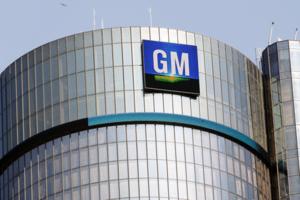
GM notches best sales since 2019 as all brands see annual growth
Sales across General Motors Co.'s brands grew in 2024, with the automaker reporting Friday that it had the best overall U.S. sales total since prior to the pandemic in 2019.
GM's 2.7 million vehicles sold for the year in the U.S. was a 4% uptick from 2023 — still under 2019's nearly 2.9 million, but marking continued steady sales growth since...Read more

Ford reports highest annual sales since before COVID, but EVs fall behind GM
Ford Motor Co.'s U.S. sales grew 4.2% year-over-year in 2024 to their highest level since pre-pandemic 2019, and it recorded a record year of electric vehicle deliveries, but fell behind crosstown rival General Motors Co. in sales of battery-powered models.
Even as affordability became an increasingly prominent issue for buyers in 2024 from ...Read more

Auto dealers battle a growing problem: synthetic identity fraud
Grand theft auto might be a problem for Metro Detroit dealers, but a growing concern among dealers nationally is fraudulent sales that appear like any other transaction.
Vehicle thefts done through identity theft, synthetic identities and similar schemes are on the rise as lucrative fraud opportunities elsewhere dry up and vehicle prices remain...Read more

Auto review: 2025 Chevrolet Suburban is America's mobile rumpus room
Today, we suffer from delusions of Autobahn grandeur, where every automaker feels compelled to endow their car with chiropractor-inducing suspension tuning. Engineered for top speed on the Autobahn, not the reality of America’s clogged arteries, they rarely offer comfortable seats or the comfort we require.
Of course, there was a time when ...Read more
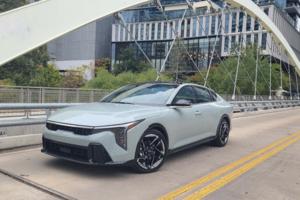
Auto review: Kia K4, compact in a tux
AUSTIN, Texas — The handsome 2025 Cadillac CT5 is here and it’s a stunner. Signature teardrop front and rear taillights, wide stance, coupe-like roofline, twin, 33-inch hoodless instrument display. Ohhhh. Alas, most buyers can’t afford its $50K-plus sticker price.
Happily, the CT5 has a $23K doppelganger called the 2025 Kia K4.
Teardrop ...Read more

Auto review: 2024 Maserati GranTurismo delivers the WOW factor
Simply put, this is the luxury sports car of the Italian fleet. Produced by parent company Stellantis and Fiat Chrysler (FCA), Maserati does it again with their Italian stallion, the 2024 Maserati GranTurismo Trofeo. This beast not only looks amazing and rides and handles unbelievably well, but it also has power that sets it apart from the rest....Read more

World's largest collector car auction back in Kissimmee with 4,500 vehicles
Mecum Auctions is once again gearing up to bring its larger-than-life collector car auction in Kissimmee, Florida, with 4,500 vehicles.
Billed as the world’s largest collector car auction, Mecum Kissimmee kicks off Jan. 7 and goes through Jan. 19 with hundreds of cars crossing the auction block every day, including classic Corvettes, American...Read more

3M tech making it easier for drivers to see on dark, rainy roads
When JC Ojeda and Marlene Lopez Ibarra pitch products to prospective customers, they first talk about their own families — and bringing them home safely.
The technical specifications of 3M’s reflective pavement markings can wait.
“When I see what we’re doing on the road, when I see that we’re saving families, when I see the ...Read more
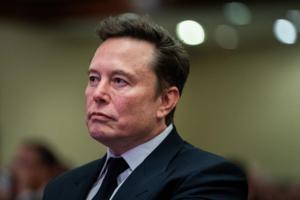
Tesla's annual sales fall for first time in company history
Tesla sales declined for the first time in the company’s history last year, the company reported Thursday, reflecting what analysts said was a lack of new models in an increasingly competitive market for electric vehicles.
Vehicle deliveries fell to 1.79 million, representing a drop of 1.1% from 1.81 million vehicles in 2023.
Tesla shares ...Read more
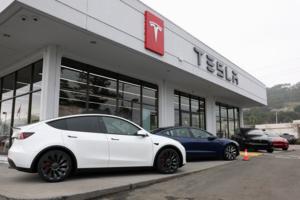
Tesla stock surge runs up against a potential annual sales drop
For all the exuberance about Tesla Inc. benefiting from President-elect Donald Trump’s return to the White House, Wall Street isn’t so sure the carmaker can avoid its first annual sales decline in over a decade.
Analysts surveyed by Bloomberg are estimating the company may deliver around 510,400 vehicles in the final three months of the ...Read more






